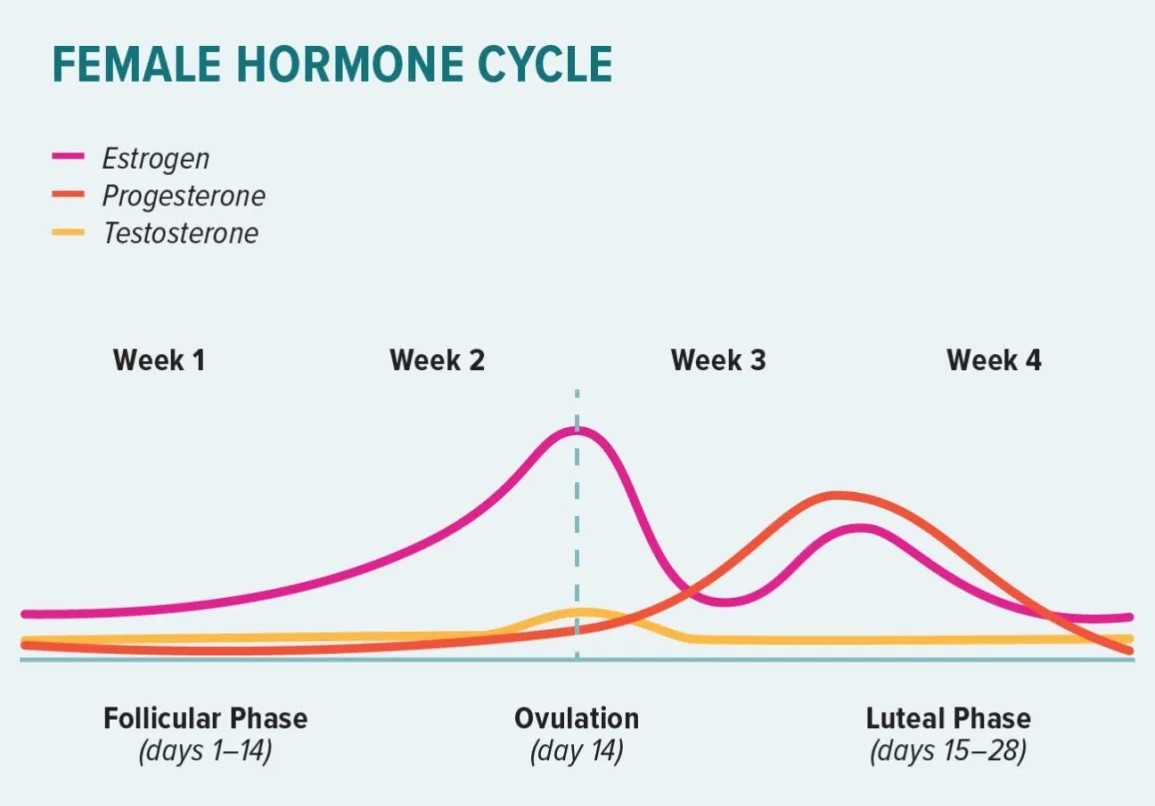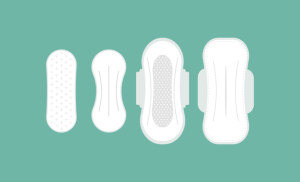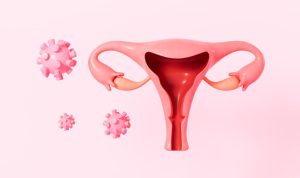Do you ever wonder why you experience sudden mood changes during your period, even though you’re naturally a calm and relaxed person?
Of course, you do!
Read to find out what causes mood swings during periods!

Not Everyone has the Same Experience
Research suggests that up to 75% of women experience some degree of PMS during their reproductive years. This condition includes mood swings alongside other symptoms, such as fatigue, stress, irritability, headache, etc.
However, these symptoms may affect different women in different ways. Some women may only feel slight irritation or a sudden feeling of sadness. Others may have sudden outbursts of anger because of intense hormonal fluctuations.
Sever PMS symptoms are quite rare and the condition is referred to as PMDD which only affects 5-10% of women during their reproductive years.
In this condition, the mood swings experienced are severe, much like what a person suffering from a mood disorder goes through, such as depression, a sudden burst of anger, extreme sadness, etc. If this happens with you too, consult with a doctor who can help you manage the mood swings.
On the other hand, if the mood swings are mild, you can treat the symptom on your own.
Why do You Experience Mood Swings?
That’s the real question!
While mood swings are normal during mensuration, this doesn’t mean that they won’t affect your daily activities or social dealings. You wouldn’t want to affect your close relationships because of your period mood swings! Right?
So, why do these sudden mood changes happen? Here’s what science says:
-
Estrogen and Progesterone Levels Fluctuate
One of the main changes that happen to your body during your period is the fluctuation in estrogen and progesterone levels. These hormones have a similar effect on women as testosterone has on men. They regulate your mood and emotions and are often behind the feelings of sadness, happiness, and irritability.
Do you feel irritated for no particular reason? It may be because of a sudden drop in estrogen and progesterone.
These hormones may cause you to feel more active and happier when their levels spike. However, when they suddenly drop during your period, it can affect your mood negatively.
Women who experience higher hormonal fluctuations will often feel moodier during their period. However, as mentioned previously, severe mood fluctuations only affect a small percentage of women, so there’s no need to worry!

-
Fluctuations in Serotonin and Dopamine
Hormonal levels don’t only affect your emotions; they also alter the levels of certain neurochemicals in your brain. Two neuro-chemicals in particular play an important role in your mood:
1. Serotonin
This neurotransmitter helps keep you calm, happy, and in control. Low serotonin levels can cause you to feel fatigued, reduce your problem-solving abilities and result in lower levels of motivation.
During your period, your serotonin levels may peak and then drop, which is why you may feel calm one moment and insecure the next.
2. Dopamine
Menstruation can also affect the dopamine levels in your brain. Dopamine is responsible for your reward system and helps you to be productive. This neurochemical is also essential to staying motivated. When you do something that’s pleasurable or relaxing, your body will produce more dopamine, making you feel satisfied.
However, dopamine fluctuations can affect your motivation to do simple things during the day. For instance, eating a chocolate bar will give you a positive feeling as your blood sugar levels increase. But afterwards when your blood sugar levels drop, the dopamine levels will also drop, resulting in a mood disruption.
Hormonal changes during your period will affect dopamine in the same way, hence leading to mood swings and irritability.
When Should You See a Doctor?
Mood swings are usually normal but can be severe in some cases. If you feel any of the following symptoms, visit a doctor or therapist for proper guidance:
- Uncontrollable mood swings and emotions
- Your mood swings affect your ability to do daily tasks
- You’re experiencing symptoms of depression and are getting suicidal
- You experience severe headaches consistently during your period
Your doctor may recommend therapy, medication, or even lifestyle changes that can help regulate your mood swings.
Lifestyle Changes May Help
Sometimes, a simple change in what you eat can affect your mood significantly. Studies have shown that women who live healthier lifestyles have a lower chance of experiencing severe mood swings.
If you’re dealing with period mood swings, follow these lifestyle tips:
- Eat healthy and mood-enhancing foods. This includes most fresh vegetables, fruit, fish, and nuts.
- Exercise at least 30 minutes daily, even if you don’t feel like it.
- Spend more time with friends and family.
- Get enough sleep.
These fundamental lifestyle changes won’t make the mood swings disappear, but they will significantly help you improve your mood.







